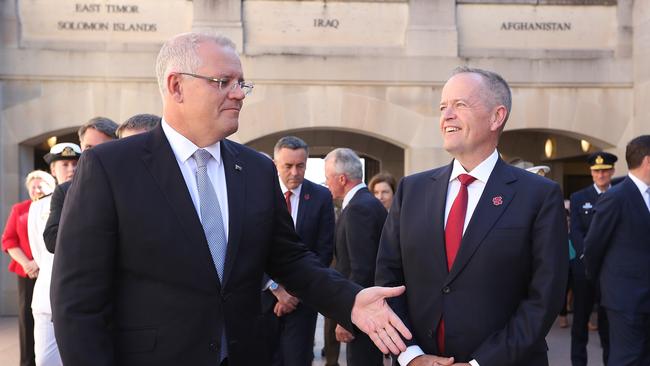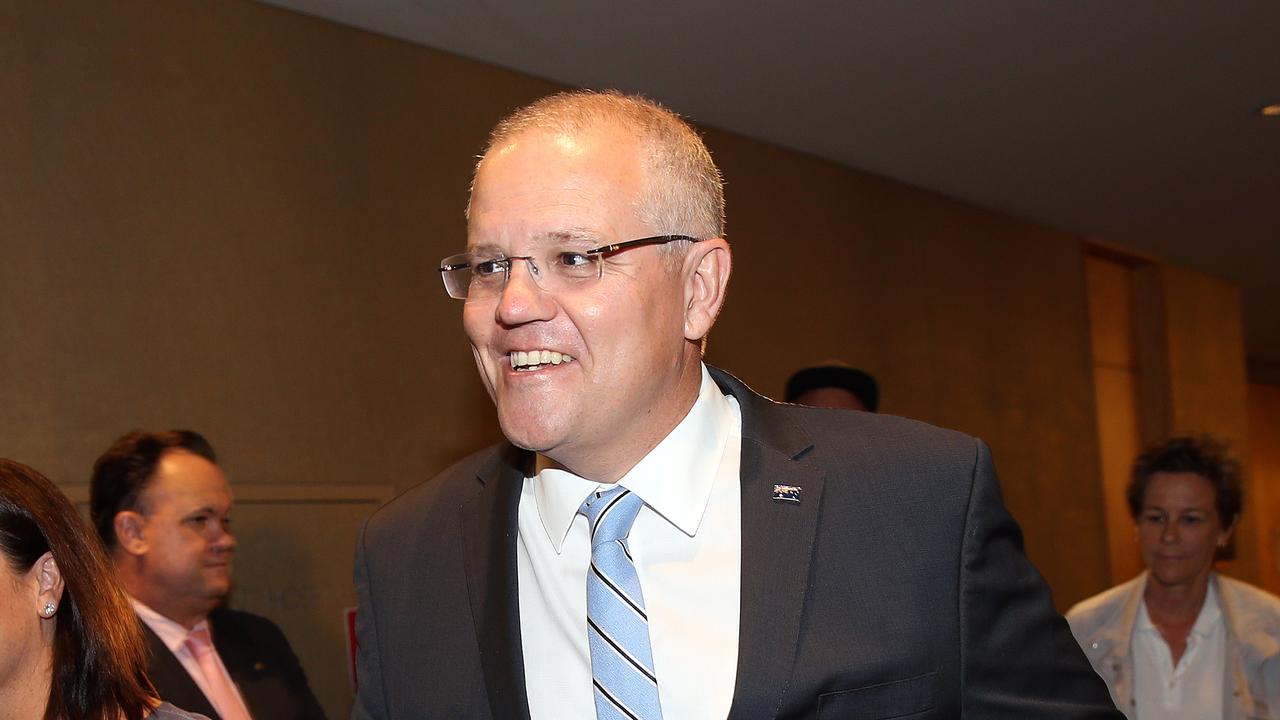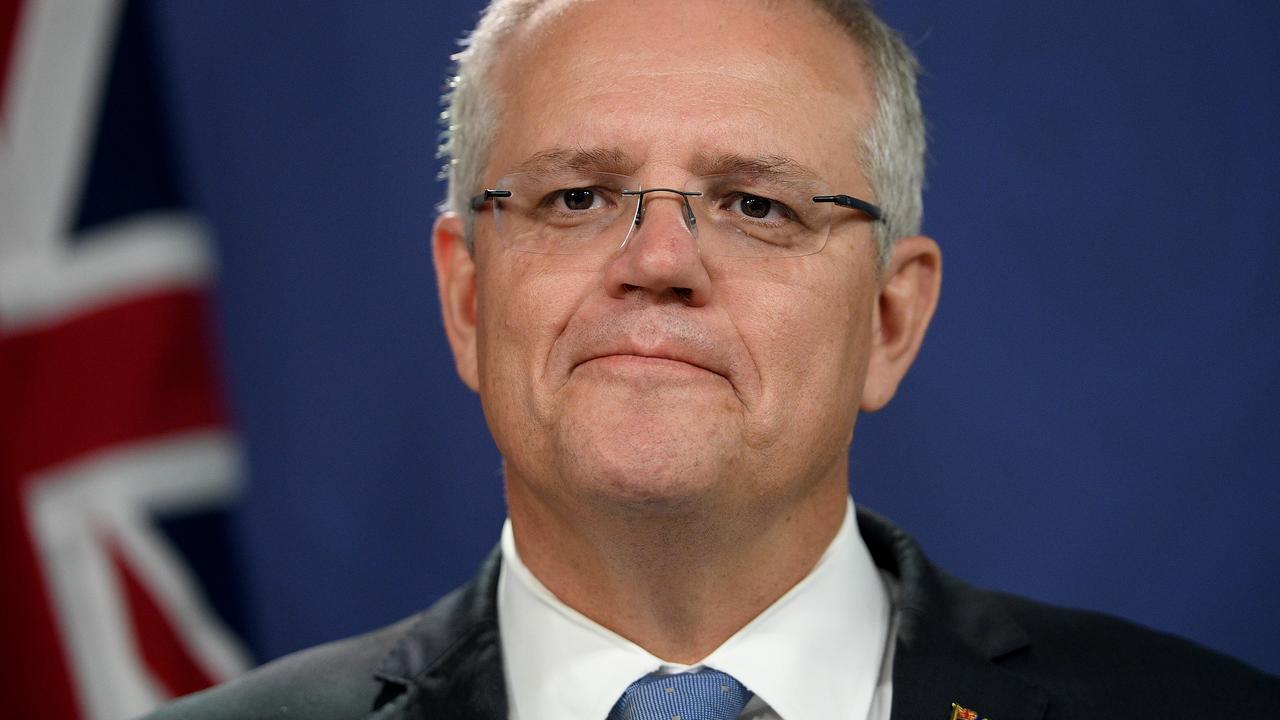
Scott Morrison has launched the election campaign and put trust in managing the economy, national security and border protection at the centre of his theme to make “Australia safe and secure”.
Rather than being defensive or off balance at the prospect of a Labor, Greens and independent parliamentary defeat this week over medical evacuations of asylum-seekers from Nauru, the Prime Minister embraced the challenge and turned it back on Bill Shorten.
Instead of being distracted or diverted by questions about Malcolm Turnbull and climate change, Morrison claimed credit for a million jobs, stopping illegal boat arrivals and “managing the finances” as he pilloried a Labor Party that was “reckless” on national security and the economy.
Morrison didn’t seek to explain or apologise for Coalition actions and policies of the past six years, simply declaring that the election — “after the budget” — would be about how Australia wanted to live in the next decade and vowing it would be stronger under the Coalition and a “weaker Australia” under Shorten.
Morrison has found his feet and voice and is not conceding it’s all too late as he promotes traditional Coalition strengths and boasts about meeting climate change targets as achievements rather than apologising for them.
While putting border protection at the tip of his election pitch, Morrison cited action against domestic violence, expanded pharmaceutical benefits, “record funding” for schools and hospitals, a million jobs, defence and national security spending on a global scale and standing up in the region as Coalition achievements based on economic management.
Questions on Liberal leadership challenges and climate change were parried with unapologetic explanations that derided Labor’s leadership experiences and “economy-destroying” climate policies.
Even on the contentious issue of parliamentary sittings and dealing with the recommendations of the banking royal commission, Morrison was resolute about not rushing new laws in a “feverish atmosphere”.
Just as John Howard in 2004, trailing in the polls, asked voters “Who do you trust?”, Morrison called for a comparison of “a track record of performance” on the economy, security and border protection between the Coalition government since 2013 — even with its three prime ministers — and the Rudd-Gillard-Rudd years.
“People can rightly say we’ve had three prime ministers — that is true. What they cannot say is that we’ve mismanaged the finances,” he said.
In the broad, Morrison’s appeal was to long-term economic improvement, huge defence spending, border security, lower taxes, sustainable health and education spending and climate change policies that reached carbon emissions targets without destroying industry and jobs.
Morrison was also willing to address the immediate political challenges peculiar to a minority government and the possibility of losing a vote on the floor of the House of Representatives over border protection.
Declaring the medical evacuation amendments as unnecessary, he said any amendments would weaken border protection and the bill’s “passage in any form takes us backwards”.
He did not criticise the motivation of those supporting easier access to Australia but came back to having to make a tough decision on “absolutes” that could not be transacted away and accept just half of 1200 deaths at sea.
Morrison said he had the mettle for those tough decisions — he may also have found his metier.



